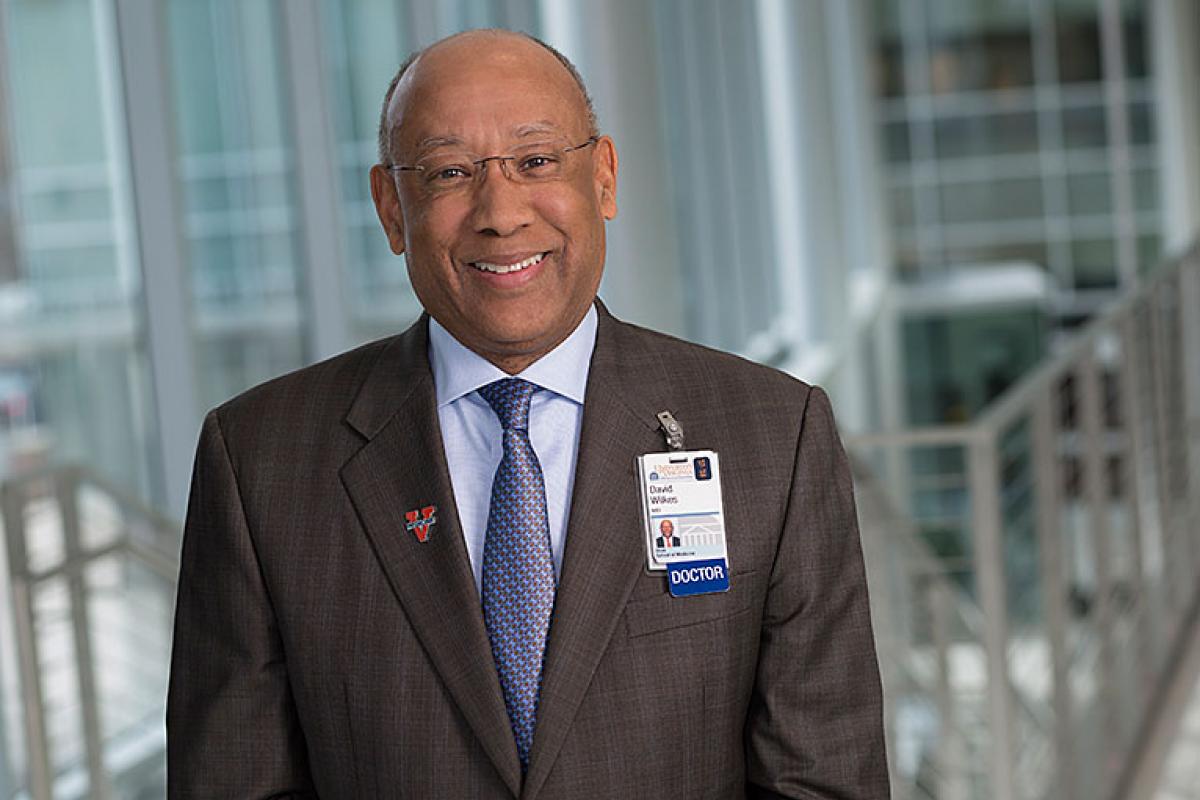Training the Next Generation
From faculty needs, to student education, to administrative responsibilities, a deanship is a position that comes with many competing priorities. Despite this, Dr. David S. Wilkes, who is serving his final year of dean as the University of Virginia School of Medicine, is poised to leave a legacy that will change the face of medicine for years to come.
Of primary concern has been an attempt to lessen the significant disparities in many critical health outcomes that exist for people of color. For example, despite making up just 13% of the U.S. population, African Americans account for about 23% of COVID-19 deaths, and similar outcomes are true for many of the most common conditions like diabetes, cancer, and infant mortality.
An effective way to begin to address disparities in health outcomes, Wilkes says, is to train healthcare providers who look like the communities they serve. Doing so helps build trust across communities and bridge cultural differences.
“Each of us needs to do what we can to eliminate health disparities, improve access to health care, and support the structures that help us achieve health and racial justice,” says Wilkes. “This work is crucial for patients and caregivers alike.”
Among the dean’s key initiatives has been a three-year tuition freeze at the School of Medicine aimed at ensuring more equitable access to education. Similarly, every School of Medicine department now has a trained diversity liaison who recommends efforts aimed at initiating, maintaining, and improving environments that support an inclusive culture. Additionally, courses examining societal issues in medicine are now available for students. These efforts have resulted in UVA being awarded—for the ninth consecutive year—a Health Professions Higher Education Excellence in Diversity Award from INSIGHT Into Diversity magazine, which covers diversity issues in higher education.
This focus has also resulted in a more diverse student body at the School of Medicine. In fact, since 2008, the percentage of medical students at UVA from backgrounds underrepresented in medicine has jumped 19%, from 5% in 2008 to 24% today—a figure that far outpaces the national average of approximately 16%.
Wilkes has also fostered a team of professionals who have made strides connecting with medical students. Monica Allen is a fourth-year medical student who is active with UVA’s chapter of the Student National Medical Association (SNMA), which provides leadership opportunities for underrepresented minority medical students at UVA.
“I’m really grateful for the progress that has been made to engage with us,” says Allen, who now serves as the SNMA chapter president. “Whether we’re doing a community service project, conducting business for SNMA, or offering input to School of Medicine leadership, our work is always supported.”
Through this student organization, Allen and her classmates are paying it forward by engaging in a host of community activities.
“Some of my favorite community service projects have been the mentoring opportunities,” says Allen, “because we’re helping to build a pipeline of young people of color who may very well become doctors.”
One such event was career day, when the SNMA students partnered with a local middle school to host students, hopefully paving the way for young people to see themselves as future medical professionals. The student group has also held toy drives for children around the holidays, and last year they even held a virtual panel discussion for diverse pre-med students at UVA who were considering taking a gap year prior to applying for medical school.
Allen, who plans to pursue a residency in OB/GYN, feels that UVA has prepared her to make a real impact on the lives of her patients.
“In addition to the excellent training we received through curriculum, it’s been very powerful to see a person of color in the dean’s position,” says Allen.
Similarly, Wilkes is proud of what UVA students are doing to address some of the issues around disparities. Ideas such as understanding prescribed medications, or issues with transportation to appointments, and even helping patients navigate the medical complex to get to their doctors.
“The programs we have put into place help individuals learn to embrace and welcome diverse perspectives and experiences,” says Wilkes, “and they help create an environment where every person can feel valued and safe.”
For the clinicians and researchers who comprise the faculty, Wilkes created the Diversity Consortium, an advisory body that supports a culture of equality, inclusion, fairness, and the value all individuals.
“The Diversity Consortium facilitates conversations around race, representation, and privilege, and it provides training to help ensure that every patient, learner, and team member—no matter their race, gender, sexuality, religion, or other demographic factor—feels safe,” says Wilkes.
“They are contributing to the process of helping our minority communities heal from decades of distrust,” he adds. “It will take time, but through the work that the Diversity Consortium and others do, our patients will recognize that they receive excellent care that is delivered with respect and compassion.”
As he completes his final year as dean, Wilkes is still focused on continuing this work. For individuals, he encourages getting involved in diversity initiatives and treating everyone who is different from you with warmth and sincerity. Similarly, at the community level, he’s aware of how far this work has come, and how much further there is to go.
“We have made a lot of progress, and, frankly, these efforts can never stop. With the recruitment of Tracy Downs, UVA Health’s first Chief Diversity and Community Engagement Officer, I am confident we will continue to innovate and achieve positive results,” says Wilkes. “Our students, faculty, and staff have demonstrated a sincere commitment to eliminate inequities and create a community where all can thrive.”

